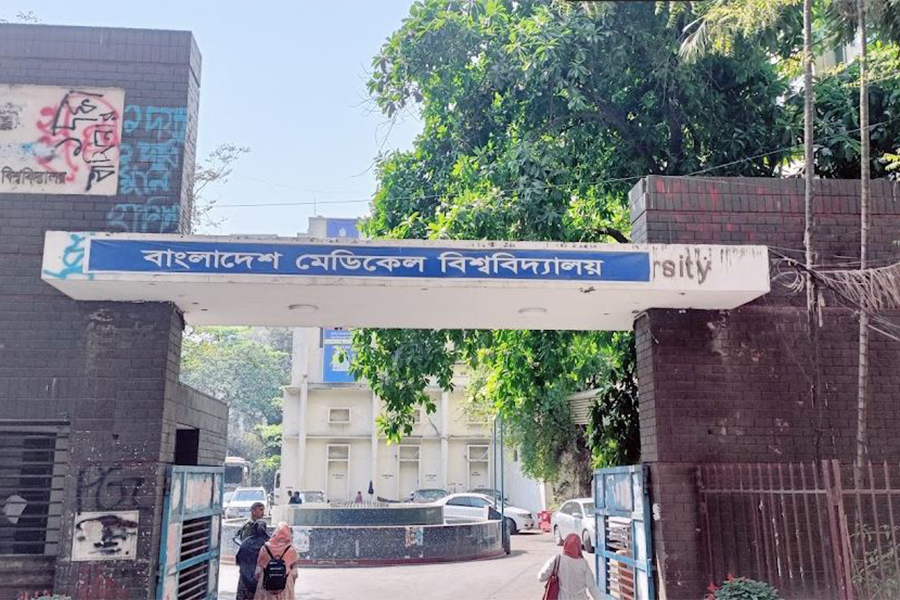

The country’s first robotic rehabilitation centre has opened at Bangladesh Medical University in Dhaka, offering new treatment options for patients with paralysis and a range of neurological disorders.
Officials say the centre will aid those requiring complex rehabilitation, including people suffering from paralysis, neurological impairment, chronic pain, nerve injury, frozen shoulders, accidental complications, or weakness in parts of the body.
The centre was inaugurated by Health and Family Welfare Adviser Nurjahan Begum on Sunday, bdnews24.com reports.
She was joined by Dr Sayedur Rahman, special assistant to the chief adviser, Md Saidur Rahman, senior secretary of the Health and Family Welfare Division, Dr Shahinul Alam, vice chancellor of Bangladesh Medical University, and Yao Wen, the Chinese ambassador to Bangladesh.
Although formally launched, the facility will not immediately be open to the general public.
For now, it is providing therapy to people injured in the mass uprising in July.
Broader patient services will begin once the Directorate General of Drug Administration grants formal approval.
At the ceremony, Nurjahan said China had originally planned to send 10 to 12 robots for rehabilitation efforts but had instead donated 62.
She added that China also trained 27 doctors and physiotherapists at the university.
“This robotic centre will benefit people all over the country,” she said, calling for similar centres to be established outside Dhaka.
“I think Bangladesh is an accident depot,” she said.
“Accidents happen every now and then, people die, their limbs are broken. In one accident after another, some of our young generation are losing their lives, some are getting spinal cord injuries, some are getting brain damage. We have a big opportunity to treat such patients. We should utilise this.”
Dr MA Shakur, a professor in the Department of Physical Medicine at the university and focal person of the project, said the hospital has applied for permission to open the centre to the public.
He expressed hope that approval would come soon.
“There is a risk of these devices breaking down if they are left unused,” he said, explaining that patients injured in July are being treated to keep the machines functional.
“If permission is given, it will be opened to everyone. I hope we will get it very soon. We have prepared a SOP (Standard Operating Procedure) to determine the cost. We will talk to everyone and determine a fee that is easy for the people of the country.”
The Chinese government has donated robotic equipment valued at about Tk 200 million for the centre, including 62 robots, 22 of which are equipped with artificial intelligence.
Officials say the machines are capable of providing physiotherapy, neurological rehabilitation, and long-term care tailored precisely to the needs of individual patients.
To prepare for the launch, a team of seven biomedical engineers from China trained 27 doctors and physiotherapists from the university.


 For all latest news, follow The Financial Express Google News channel.
For all latest news, follow The Financial Express Google News channel.